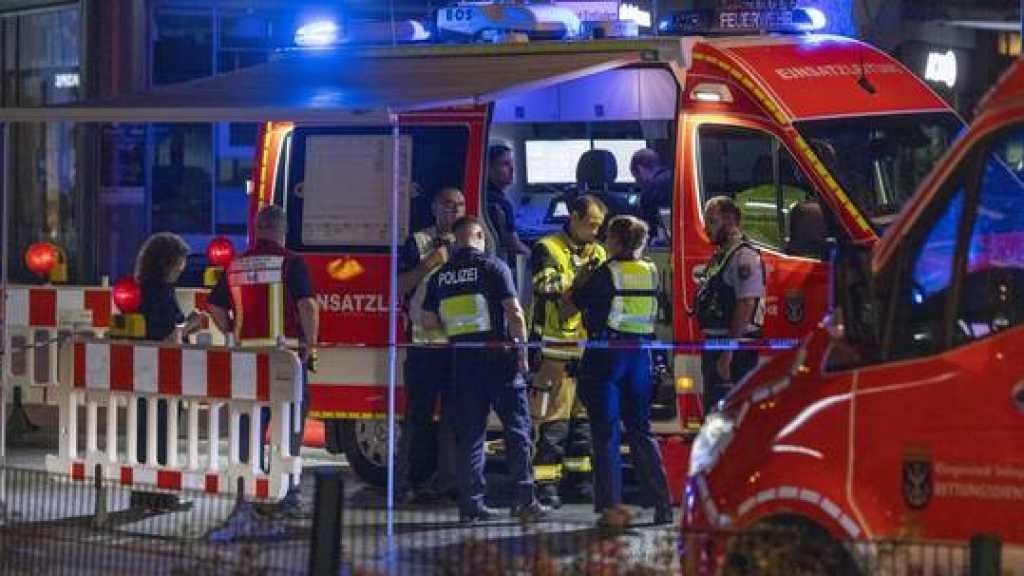Anger in Germany at Report Trump Seeking Exclusive Coronavirus Vaccine Deal

By Staff, Agencies
German ministers have reacted angrily following reports US President Donald Trump offered a German medical company “large sums of money” for exclusive rights to a Covid-19 vaccine.
“Germany is not for sale,” economy minister Peter Altmaier told broadcaster ARD, reacting to a front page report in Welt am Sonntag newspaper headlined “Trump vs Berlin”.
The newspaper reported Trump offered $1bn to Tübingen-based biopharmaceutical company CureVac to secure the vaccine “only for the United States”.
The German government was reportedly offering its own financial incentives for the vaccine to stay in the country.
The report prompted fury in Berlin. “German researchers are taking a leading role in developing medication and vaccines as part of global cooperation networks,” foreign minister Heiko Maas told the Funke Mediengruppe research network. “We cannot allow a situation where others want to exclusively acquire the results of their research,” said Maas, of the center-left SPD.
“International co-operation is important now, not national self-interest,” said Erwin Ruddel, a conservative lawmaker on the German parliament’s health committee.
Christian Lindner, leader of the liberal FDP party, accused Trump of electioneering, saying: “Obviously Trump will use any means available in an election campaign.”
The German health minister, Jens Spahn, said a takeover of CureVac by the Trump administration was “off the table”. CureVac would only develop vaccine “for the whole world”, Spahn said, “not for individual countries”.
Worldwide infections have grown to more than more than 86,000, according to the Johns Hopkins university tracker, while cases inside China stood at 80,860 as of Monday. Deaths outside China have risen to more than 3,241, while deaths in mainland China stand at 3,208 as of Monday.
At a news conference on Sunday, interior minister Horst Seehofer was asked to confirm the attempts to court the German company. “I can only say that I have heard several times today from government officials today that this is the case, and we will be discussing it in the crisis committee tomorrow,” he said.
A US official told AFP on Sunday that the report was “wildly overplayed”. “The US government has spoken with many [more than 25] companies that claim they can help with a vaccine. Most of these companies already received seed funding from US investors.”
The official also denied the US was seeking to keep any potential vaccine for itself. “We will continue to talk to any company that claims to be able to help. And any solution found would be shared with the world,” the official said.
CureVac, founded in 2000, is based in the German state of Baden-Wurttemberg, and has other sites in Frankfurt and Boston.
The firm markets itself as specializing in “development of treatments against cancer, antibody-based therapies, treatment of rare illnesses and prophylactic vaccines”.
The lab is working in tandem with the Paul-Ehrlich Institute, linked to the German health ministry.
Last week, the firm mysteriously announced that CureVac CEO Daniel Menichella had been replaced by Ingmar Hoerr, just weeks after Menichella met Trump, his vice-president Mike Pence and representatives of pharma companies in Washington.
CureVac quoted Menichella on its website as saying shortly after the visit: “We are very confident that we will be able to develop a potent vaccine candidate within a few months.”
On Sunday, CureVac investors said they would not sell the vaccine to a single state.
“If we are successful in developing an effective vaccine, then it should help and protect people across the world,” said Dietmar Hopp, head of principle investor dievini Hopp BioTech holding, in a statement.
Altmaier welcomed the statement, saying it was a “fantastic decision”.
He also pointed out the government had the power to scrutinise foreign takeovers, saying: “Where important infrastructure and national and European interests are concerned, we will take action if we have to.”
Comments

Germany Withdraws Troops from Niger
3 months ago
Three Dead after Stabbing Attack in Germany
3 months ago

